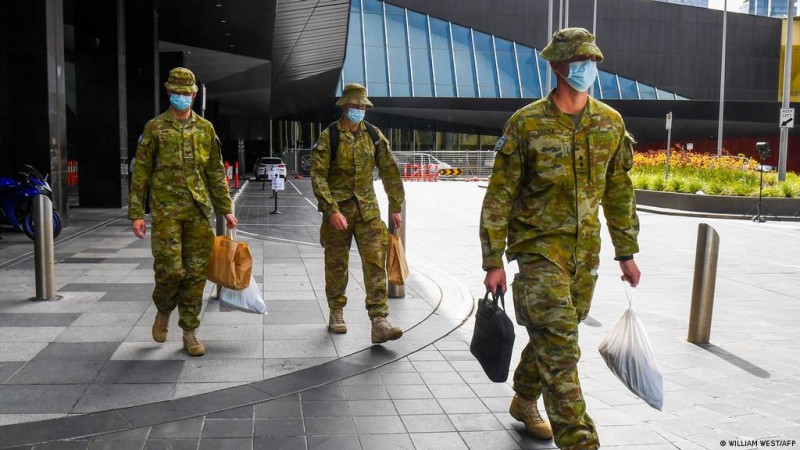
A Delta outbreak which began in June has produced nearly 3,000 infections and led to nine deaths. Australian Defence Force soldiers will undergo training on the weekend before beginning unarmed patrols on Monday. But many have questioned whether the military intervention is necessary, calling it heavy-handed. The lockdown - in place until at least 28 August - bars people from leaving their home except for essential exercise, shopping, caregiving and other reasons.
Despite five weeks of lockdown, infections in the nation's largest city continue to spread. Officials recorded 170 new cases on Friday. Soldiers will join police in virus hotspots to ensure people are following the rules, which include a 10km (6.2 miles) travel limit. State Police Minister David Elliott said it would help because a small minority of Sydneysiders thought "the rules didn't apply to them". Information provided by health officials indicates the virus is mainly spreading through permitted movement.
The Australian Lawyers Alliance, a civil rights group, called the deployment a "concerning use" of the army in a liberal democracy. The outbreak has largely affected critical workers and large family groups in the city's poorer and ethnically diverse west and south-west suburbs. About two million people live there. Critics say those areas have already faced "targeted" policing measures. They point out restrictions there are harsher than for the rest of Sydney.
Nigeria's kidnap crisis: 'I saw my two-year-old carried by a man with a gun'
Settlement reached against fertility doctor accused of using his sperm to impregnate women
Snow on Brazil streets during a rare winter weather phenomenon
Karnataka: Cabinet expansion could likely take place next week, says CM Bommai